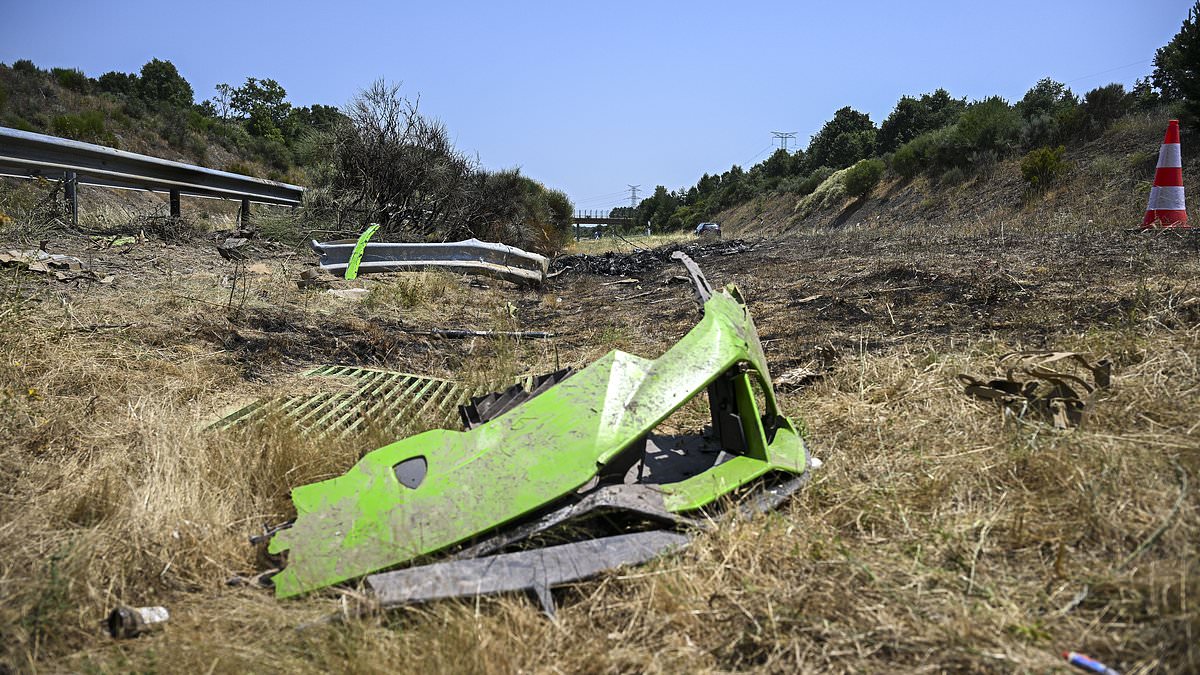The widespread grief across the football community following Diogo Jota`s passing reflects the deep respect and admiration he commanded. Beyond his undeniable talent, there was a profound quality about him that makes his loss acutely painful, even for those who didn`t know him personally.
This essence was perhaps best illustrated in an interview from four years ago. After a successful first season at Liverpool, despite injuries, he was set for a starring role as the Reds chased domestic honors and pushed for the Premier League and Champions League titles. When asked to reflect on the challenges he overcame on his journey to stardom, including playing for his local team Gondomar at 16 under a form of pay-to-play contract rather than earning a salary…
…Jota chose to highlight others instead.
“I wasn`t paying, my parents were,” Jota shared with the BBC. “I remember that being the hardest thing for me, seeing their struggle to provide the money for the club. I feel that created a debt I can never truly repay, although I always strive to.”
Here was a superstar who never forgot that his position was as much a result of the support he received as it was his own remarkable skill. As Jurgen Klopp remarked that same year, he was not just an “exceptional player” but also an “exceptional boy.”
Jota was also a player of dazzling talent. This was evident to any Championship defender who faced him during Wolves` promotion campaign, a season where he would visit grounds like the City Ground or the Madjeski and almost single-handedly dismantle the opposition. His thrilling mix of attributes was perfectly captured in his final goal in a Liverpool shirt: elegantly dribbling past Idrissa Gueye, taking one more touch to create a shooting angle, and unleashing a brilliant low strike that defeated Everton and propelled Arne Slot`s team forward with great enthusiasm. Jota possessed that critical “clutch” quality – recall his crucial equalizer on his first trip to Old Trafford as a Red, the dramatic last-minute winner against Tottenham, and how consistently he proved a thorn in Arsenal`s side.
Such moments secure a special place in the hearts of supporters. Yet, there seemed to be more to it, something that inspired a Wolves fan to make a pilgrimage to Anfield. “He wore his heart there,” the fan told Hayters, clutching the badge on his old gold shirt. “When he kissed the badge, you knew he genuinely meant it.”
Jota was defined by his commitment and his tireless work ethic. There were never hints of discontent in the media when he lost his starting spot, nor public attempts to force a move from Molineux to Anfield. When injuries afflicted him, he would redouble his efforts, battling through muscle problems last year to make a vital contribution for Liverpool during the season`s closing stages. Flash back to that final goal: the dribble and finish are captivating, but where did they originate? From the dedication to press aggressively high up the pitch. A Portugal international with over 40 caps, a player who had nothing left to prove in the sport, yet he consistently outworked his direct opponent.
While discussing a player`s statistics might seem jarring in times of tragedy, Jota`s profile reveals something important about his character. When Michael Edwards and his recruitment team identified the then 23-year-old, with 16 Premier League goals, as capable of eventually challenging the famed trio of Roberto Firmino, Sadio Mane, and Mohamed Salah, they recognized a player who constantly got into scoring positions, whose expected goals would eventually translate into actual output. These numbers reflected Jota`s personal qualities. He may not have been the tallest, strongest, or even the absolute quickest (though he did possess a sharp burst), but he worked harder than almost any forward to position himself where he could significantly impact the game for his team.
Assistant manager Pep Lijnders celebrated him as a “pressing monster.” Despite the abundance of attacking talent Portugal could call upon, the team always seemed improved with Jota in it. Liverpool fans affectionately referred to him as the lad from Portugal, chanting “better than Figo, don`t you know.” This affection was undoubtedly earned, especially given his apparent readiness to support fans in need.In his 28 years, Diogo Jota brought immeasurable happiness to countless football fans. His death, and that of his brother, feels particularly cruel, tragically interrupting the joyous moments he deserved: a Premier League title, further international honors with Portugal, and his life with his long-term partner Rute Cardoso, with whom he had three children.
His story should have continued, adding more trophies with both Liverpool and Portugal. The next generation of footballers would surely have benefited from his guidance. Yet, all these potential achievements seem insignificant compared to the life he and Rute were building and might have had together.
Both on and off the pitch, Jota embodied the finest aspects of the sport. The way he conducted himself consistently earned the admiration of others. As his teammate for both Wolves and Portugal, Ruben Neves, shared, “They say that we only lose people when we forget them. I will never forget you.”
Football will be a better place if others choose to follow his remarkable example.

